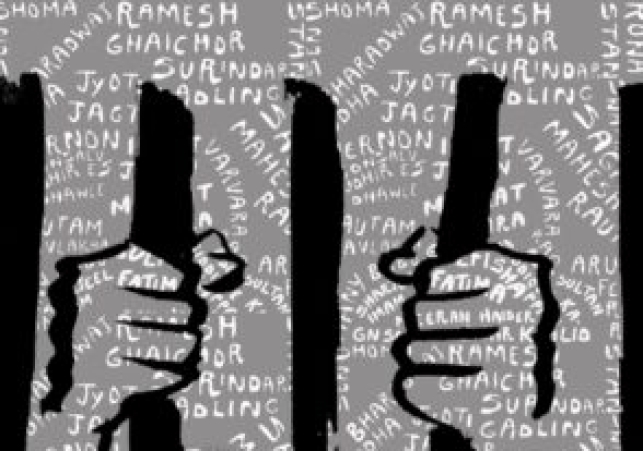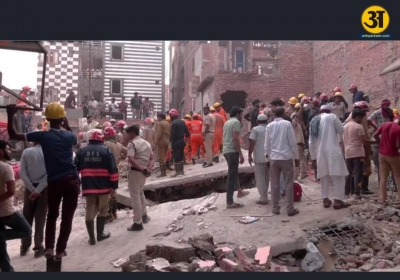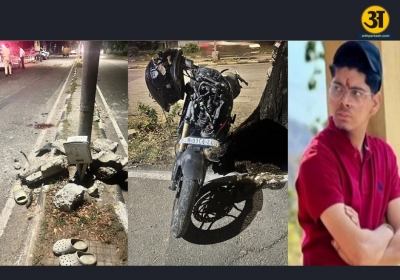
UAPA is unconstitutional but its also heavily biased
UAPA is unconstitutional but its also heavily biased
- By Saniya --
- Tuesday, 05 Apr, 2022
UAPA, an anti-terror legislation, has been now routinely used for crushing dissent. The legislation touted to be draconian permits detention without charge for up to 180 days, making it a convenient tool to silence mainly journalists, activists, and dissidents.While the Act itself has come under harsh but legitimate criticism for the unchecked power it grants the state and has been used arbitrarily against journalists, activists, and the like for speaking out against the regime, it certainly turns a blind eye to atrocities committed by people of a certain religion or social standing.
For e.g., Yati Narsinghanand, a Hindu priest and a habitual hate monger who has asked his followers to exterminate Muslims, is now on bail carrying on with its genocidal calls against minorities with impunity. A group of Hindutva men vandalised a Sai Baba shrine in Shahpur Jat, Delhi, in last April. Narsinghanand is said to have encouraged the main attacker, Padam Panwar, a leading south Delhi businessman. Yati then appeared in a video with Narsinghanand, who complimented him on demolishing the "jihadi's idol" and stated, "If I had my way, such 'jihadis' would never be allowed in our temples."
What should be noted is that he has neither been charged under the Unlawful activities prevention act nor the NSA despite him committing acts that fit its legislation. Police have long used UAPA to crush dissent, but why wasn't it used in a case as extreme as an open call to genocide. One thing to be pointed out is that it was the same police who arrested the Kerala journalist Siddique Kappan in anticipation of the violence his yet-to-be-uttered words could have caused. He was charged under UAPA because the Uttar Pradesh police feared he was gonna hurt sentiments or spark violence. This routine is followed to the t only when Muslims are involved.
Haridwar Hate Assembly, Burari Hindu Mahapanchayat organisers, committed open calls for genocide and have asked people to take up arms; if that doesn't warrant a charge under UAPA, what does? UAPA is clearly missing in action when it comes to the case of this militant Hindutva leaders and their open calls to genocide to the public, which is not only widely documented but is also readily available on almost all major social media platforms
There's no denying that UAPA infringes on the civil liberties of individuals and has no place in a democratic country like India, but it has heavily been used to discriminate against people who don't conform to the regime's ideology or instruction and present a threat to the status quo. While UAPA is charged left and right when even a small voice of dissent is being raised, the legislation in itself allows anti-minority elements to thrive by turning a blind eye towards it. By ignoring militant Hindutva leaders and their genocidal incendiary speeches, it is giving free way to anti-minority elements to have complete impunity to engage in hate speech, arson, and outright murders.
The vaguely worded definitions and provisions within the Act, such as "likely to threaten" and "promote terrorism," give the investigating authorities, and in turn, the government, the power to arrest anyone it wants to against their will.
These broad definitions have been used in November 2021 by the police to arrest 102 people who were booked under UAPA for posting on social media regarding violence in the BJP-ruled state of Tripura. Between 2014 and 2020, 10,552 Indians were arrested under UAPA — but only 253 have been convicted. The dismal conviction rate of UAPA cases of 2% only further indicates its indiscriminate misuse by the state.
UAPA makes constitutional remedies available to the accused, such as bail, entirely meaningless while providing the state with limitless power and authority and as rightfully said, if you are charged under UAPA, the process itself becomes the Punishment. Take the example of Umar Khalid, accused of being a "key conspirator" in the February 2020 Delhi Riots has been languishing in jail for nearly two years without bail. UAPA places unreasonable restrictions on constitutionally guaranteed rights and gives the state complete impunity to engage in human rights violations therefore must be repealed unconditionally.




.jpg)
